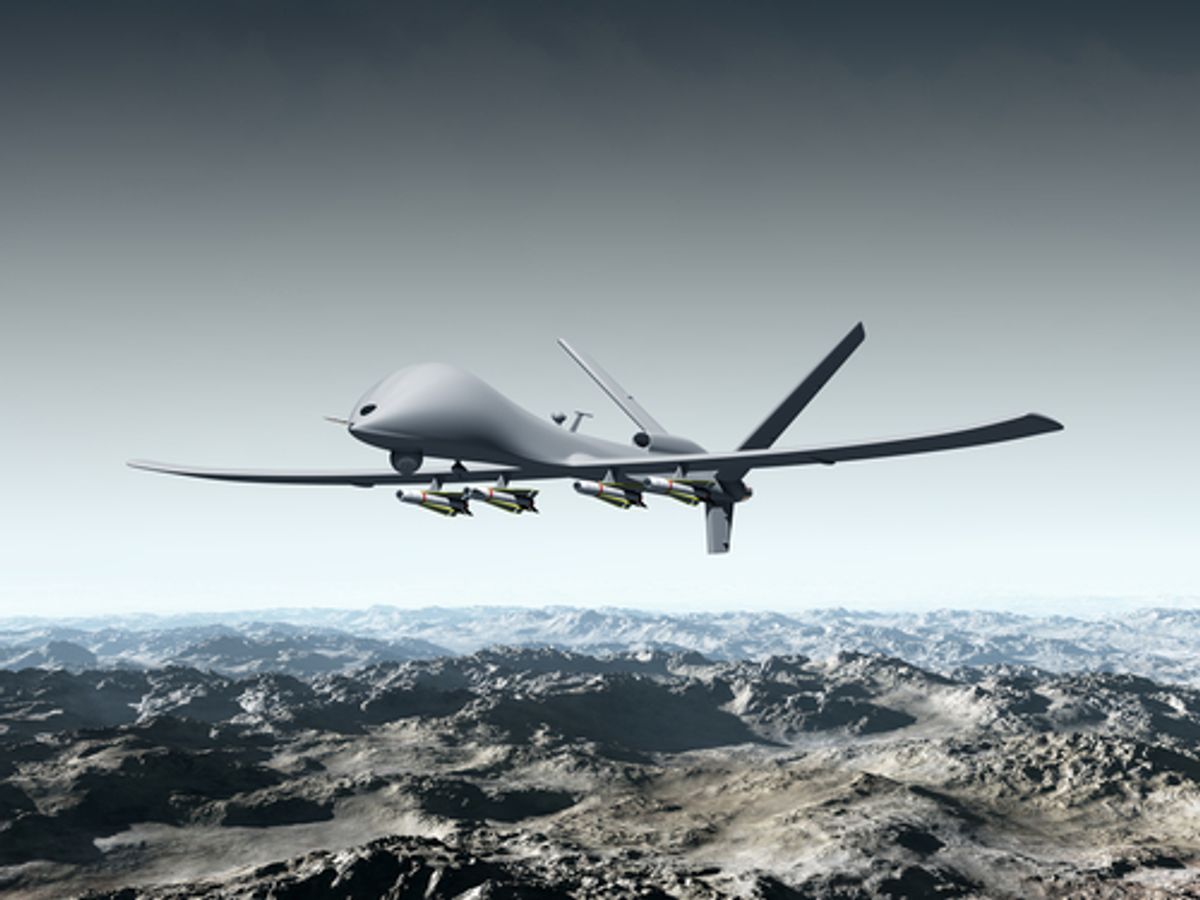Last August, counterterrorism adviser and nominee for CIA chief John Brennan publicly denied that U.S. drone strikes in Yemen were provoking anti-American sentiment. The attacks, Brennan said, had aided the Yemeni government in freeing its citizens from the "hellish grip" of al-Qaida in the country's south.
But on Tuesday Yemen's human rights minister criticized drone strikes as a counterterror tactic. "I am in favor of changing the anti-terrorism strategy. I think there are more effective strategies," said cabinet minister and former anti-Saleh activist Hooria Mashhour. "We're committed to fighting terrorism but we're calling for changing the means and strategies ... These means and strategies can be applied on the ground without harming civilians and without leading to human rights violations," she told Reuters.
Mashhour's comments come in the wake of amped-up U.S. strikes over Yemen since late December, which have provoked growing local anger. As Reuters reported, "On Sunday armed tribesman, angry at what they said was a drone attack on an area inhabited by civilians, blocked the main road linking Maarib with Sanaa. Earlier this month, dozens of armed tribesmen also took to the streets in southern Yemen to protest against drone strikes that they said had killed innocent civilians and fuelled anger against the United States."
As Reuters noted, diplomatic cables leaked by WikiLeaks revealed that in 2009 the now-ousted Yemeni President Ali Abdullah Saleh agreed to allow a U.S. shadow war against Islamist militants in southern Yemen, and even agreed to take responsibility for U.S. attacks if needed. Saleh's successor, President Abd-Rabbu Mansour Hadi, has also approved the attacks. Yemen's location next to Saudi Arabia, the world's top oil exporter, as well as the security of shipping lanes, has made Yemen a major and controversial priority for the U.S. War on Terror.
Mashhour criticized the drone war for its denial of a fair trial to Yemenis accused of terrorist activity:
This is our idea, to do this through the judiciary. But the United States said that it's in an open war with them and they declared the US as an enemy. The [US] declared [Islamist militants] as enemies who could be targeted wherever they are found... All we are calling for is justice and reliance on international regulations with regard to human rights and to be true to our commitment to our citizens in that they all deserve a fair trial.
In Pakistan, where, according to the Bureau of Investigative Journalism, 891 civilians have been killed by U.S. drones since 2004, politicians are vocally critical of the U.S.'s drone program there. Former cricketer and popular politician Imran Khan, for example, has vehemently criticized and led protest actions against U.S. drone attacks in his country. In Yemen, by contrast, critical comments from government ministers like Mashhour are rare -- almost as rare as U.S. officials publicly speaking about their country's shadow war at all.



Shares